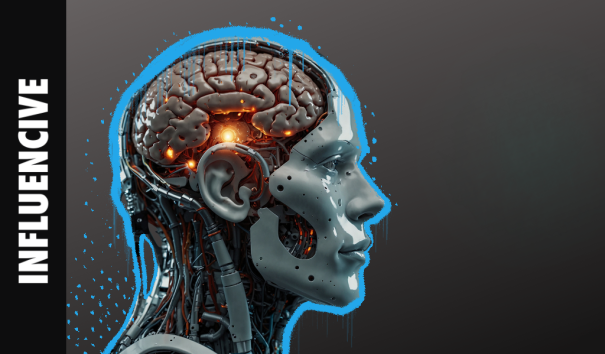If you’re anything like me, it might feel like AI emerged from nowhere. One moment it was the topic of science fiction films, and the next, everyone was talking about ChatGPT.
Many groundbreaking technologies have a long and storied development history. Think of the SR-71 Blackbird as an example. This iconic reconnaissance aircraft, developed by Lockheed Martin’s Skunk Works division, took over a decade from its conceptualization in the late 1950s to its first flight in 1964. The amount of time and effort that went into the SR-71’s creation underscore how technological advancements often require years of rigorous development, testing, and refinement.
In the same way, artificial intelligence has been progressing for decades, with significant milestones as far back as the 1950s when the concept of AI was first proposed. Much like the engineers at Skunk Works, the work carried out by early AI pioneers laid the groundwork for today’s sophisticated AI systems. What may seem like an overnight sensation is actually the result of decades of research, trial, and incremental innovation.
Let’s take a closer look at ten major milestones in AI development:
- Alan Turing’s Turing Test (1950): Alan Turing proposed a test to determine a machine’s ability to exhibit intelligent behavior indistinguishable from that of a human. This laid the foundation for evaluating AI systems’ capabilities.
- The Logic Theorist (1956): Developed by Allen Newell, J.C. Shaw, and Herbert A. Simon, the Logic Theorist was the first AI program designed to mimic human problem-solving skills, marking the birth of AI as a field of study.
- The Dartmouth Conference (1956): This conference, organized by John McCarthy, Marvin Minsky, Nathaniel Rochester, and Claude Shannon, coined the term “artificial intelligence” and laid out the goals and scope of AI research.
- Expert Systems (1960s-1970s): Expert systems emerged as AI programs designed to replicate the decision-making abilities of human experts in specific domains, leading to practical applications in fields such as medicine and finance.
- The Lighthill Report (1973): Commissioned by the British government, the report by James Lighthill criticized the progress of AI research, leading to a period known as the “AI winter,” where funding and interest in AI dwindled.
- Backpropagation Algorithm (1986): The development of the backpropagation algorithm by Geoffrey Hinton, David Rumelhart, and Ronald Williams revolutionized neural network training, enabling the efficient training of deep neural networks.
- IBM’s Deep Blue Defeats Kasparov (1997): IBM’s Deep Blue became the first computer system to defeat a reigning world chess champion, Garry Kasparov, showcasing the potential of AI in complex problem-solving.
- Google’s PageRank Algorithm (1998): Developed by Larry Page and Sergey Brin, PageRank revolutionized web search by using AI techniques to rank web pages based on their importance and relevance, laying the foundation for Google’s search engine.
- Deep Learning Renaissance (2010s): Breakthroughs in deep learning, fueled by advances in computational power and data availability, led to significant progress in AI applications, including image recognition, natural language processing, and autonomous vehicles.
- AlphaGo’s Victory Over Lee Sedol (2016): DeepMind’s AlphaGo defeated world champion Go player Lee Sedol, demonstrating AI’s ability to master complex games through deep reinforcement learning and symbolic reasoning.
Present Day
Today, artificial intelligence has moved beyond science fiction and research labs to become a core part of our daily lives. AI technologies power many applications, from virtual assistants like Siri, Alexa, and Google Assistant to recommendation engines on platforms like Netflix, Amazon, and Spotify. These systems use machine learning and natural language processing to deliver personalized experiences, streamlining user interactions in ways we never imagined.
AI’s impact spans various sectors. In healthcare, AI-driven diagnostic tools help radiologists detect diseases more accurately, while predictive analytics enable personalized treatment plans. Financial institutions employ AI for fraud detection and algorithmic trading, optimizing operations and safeguarding assets. E-commerce giants use AI to manage inventory, predict consumer demand, and automate customer service via chatbots. OpenAI’s GPT-4.0 generates human-like text, opening new possibilities in content creation, translation, and more.
As we look to the future, ethical considerations and responsible AI development are crucial. Issues like data privacy, algorithmic bias, and the societal impact of automation will likely require rigorous oversight and thoughtful regulation. Regardless, the current landscape of AI illustrates a technology on the brink of further breakthroughs, poised to revolutionize the way we live and work.
Cheers!
This is a Contributor Post. Opinions expressed here are opinions of the Contributor. Influencive does not endorse or review brands mentioned; does not and cannot investigate relationships with brands, products, and people mentioned and is up to the Contributor to disclose. Contributors, amongst other accounts and articles may be professional fee-based.

